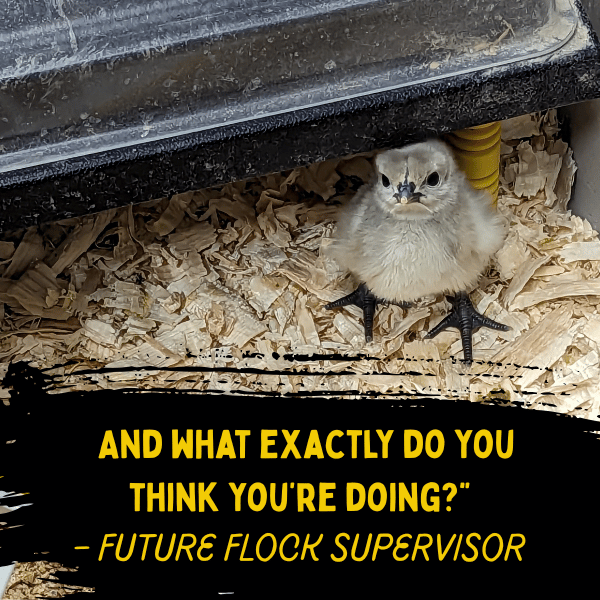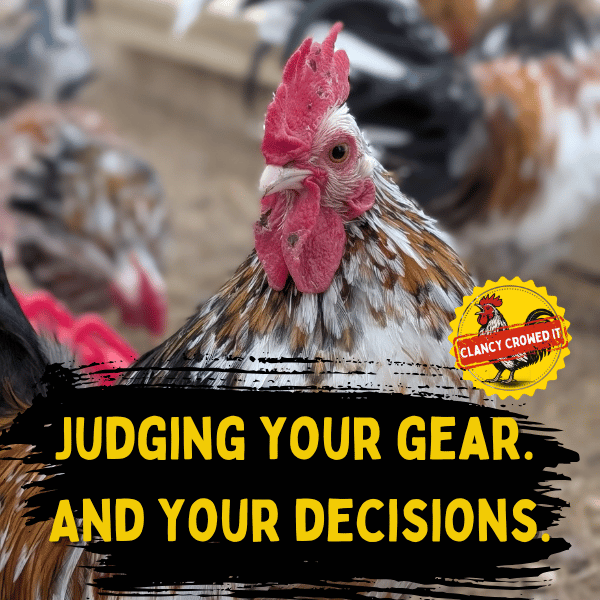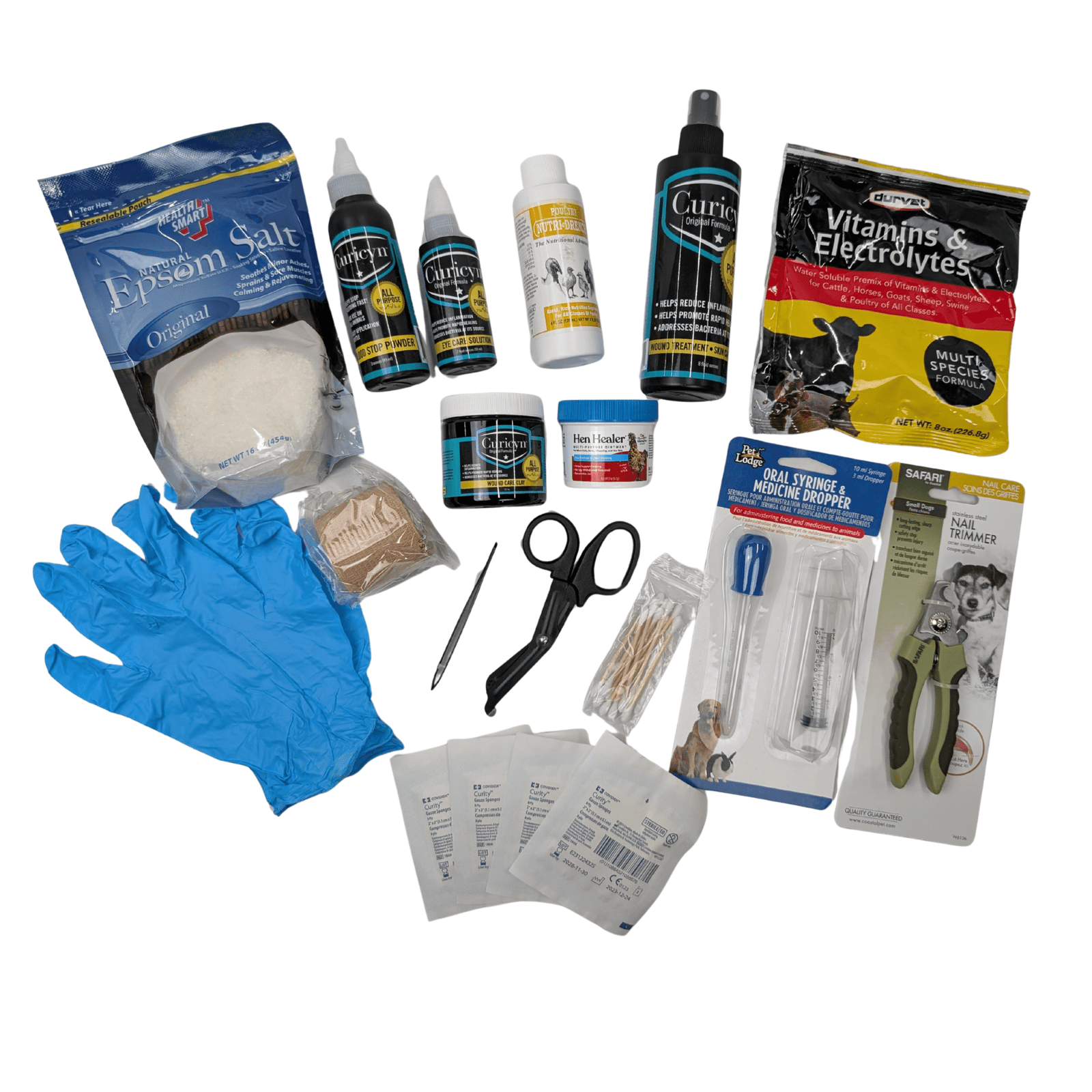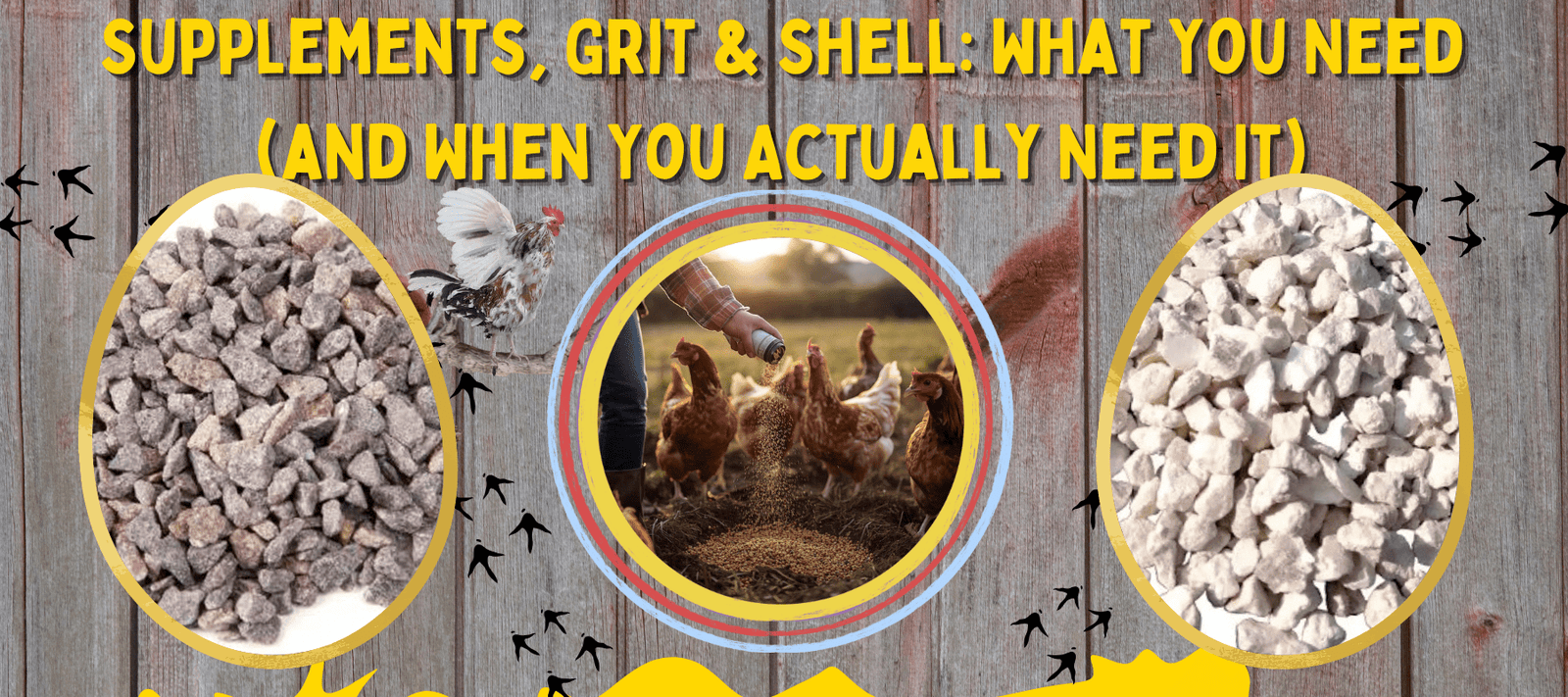Hey, all you cluckin' awesome chicken lovers! 🐔 It’s time for another peck-tacular edition of 'Just Cluckin Around.' Today, we're tackling a topic that’s crucial for chicken health but often misunderstood—Coccidiosis. Grab your notepads and your reading glasses, because this one's jam-packed with info you'll want to scratch into your memory!
So, What the Cluck is Coccidiosis? 🤨
For those just tuning in, coccidiosis is a pesky intestinal disease caused by single-celled parasites called coccidia. These critters set up shop in your chicken's gut and can really ruin the party. We're talking disrupted digestion, nutrient absorption issues, and just general fowl moodiness.
Symptoms: The Early Birds Get the Worms 🐛
Recognizing the early warning signs is crucial for chicken health:
- Lethargy: Your usually vivacious chicken will start acting like it's got a bad case of the Mondays.
- Bloody Stool: An alarming sign that shouldn't be ignored.
- Ruffled Feathers: Your hens will look disheveled, and not in a cute way.
- Loss of Appetite: Even their favorite treats won’t make them peck.
- Weight Loss: Chickens should be plump and happy, not skinny and sad!
To Treat or Not to Treat, That's the Question 🤷♀️
Now, let's talk turkey, uh, we mean chicken! Before you rush to treat coccidiosis, get a stool sample to a vet. We can't stress this enough! Yes, some folks swear by treating their flocks based on symptoms alone, but that's not how we roll. We're all about the facts, not just cluck-tales. Confirming through a vet not only ensures accurate diagnosis but also helps you get the most effective treatment plan in place.
Deep Dive into Treatment Options 🚑
- Natural Treatments (With a Grain of Salt): Now, while we prioritize scientifically-backed treatments, some chicken owners look for natural remedies like garlic or apple cider vinegar as supplementary treatments. If you’re considering this route, always consult your vet first. These shouldn't replace scientifically-proven treatments but can be part of a broader health strategy for your flock.
- Treatment Plans for the Whole Flock: Often, if one chicken is infected, others are at risk. Some vets recommend treating the entire flock as a preventative measure, especially if they share the same coop or grazing areas.
- Rehydration: Dehydration is common in infected chickens. Rehydration solutions with electrolytes can help your hens regain strength. Think of it as the chicken equivalent of a sports drink after a marathon!
- Nutritional Support: During and after treatment, focus on high-quality feeds that are rich in essential nutrients. A well-fed chicken is better equipped to fight off future coccidia invasions.
-
Follow-Up Testing: After the treatment is over, it's wise to re-test your flock to make sure the coccidia are gone. Don't just assume everything’s peachy; get confirmation.
-
Treatment Duration: Always complete the full course of treatment even if the symptoms disappear. Stopping treatment early can result in the coccidia developing resistance to medications, and we don't want that!
- Egg Withdrawal: During and after treatment with certain medications, you'll need to stop eating your chickens' eggs for a specified period. Your vet will give you the exact guidelines on when it's safe to resume.
- Probiotics After Treatment: Once your chickens have completed their course of medication, it's a great idea to introduce probiotics into their diet. Why, you ask? Well, the medications, while effective, often wipe out both bad and good bacteria in the gut. Probiotics help to repopulate the gut with beneficial bacteria, aiding in quicker recovery and improving overall gut health. Think of it as the aftermath cleanup crew, restoring balance and ensuring your chickens are in cluck-tastic shape for the days ahead!
An Ounce of Prevention is Worth a Pound of Feathers🛡️
Taking preventive measures to guard against coccidiosis is akin to fortifying your chicken coop—both are essential for the long-term well-being of your feathered family. Let's get into the nitty-gritty details:
1. The Sanctuary of Coop Hygiene 🧹
Keeping your coop clean is like giving coccidia an eviction notice. Be thorough in cleaning every nook and cranny, including the nesting boxes and roosting bars. Utilize coop-friendly disinfectants and consider doing this at least once a week, depending on your flock's size and the weather conditions.
2. Keep It Dry, Keep It High: The Importance of Dry Conditions 🌞
Moist environments are like coccidia playgrounds. Ensure proper drainage in your coop and run area. Invest in quality bedding like straw or wood shavings that can absorb moisture effectively. During rainy seasons, check for water pooling and address it promptly.
3. Elevate to Eliminate: Feeders and Waterers 🍗💧
Feeders and waterers can be accidental hotspots for coccidia. Elevate these essentials to prevent your chickens from scratching dirt into them or contaminating them with droppings. Implement a cleaning schedule for these items using a mild, chicken-safe disinfectant.
4. You Are What You Eat: Nutrition and Chicken Health 🌽
Good nutrition is your flock’s first line of defense against many diseases, coccidiosis included. Choose feeds that are fortified with essential vitamins and minerals. The right nutrition will give your chickens the vigor they need to fend off coccidia.
5. Don't Put All Your Eggs in One Basket: Rotating Grazing Areas 🔄
If your chickens are free-range, rotating the areas where they graze can help break the life cycle of coccidia in the soil. This disperses the parasites, reducing the concentration and thereby the potential for infection.
6. The Newbie Quarantine: Introduction of New Birds 🐣
New birds should be kept in a separate area for at least 14-21 days. During this time, check their stool for signs of coccidia and also check for internal/external parasites.
7. The Zen Coop: Stress Management 🧘♀️
Stress weakens the immune system, making chickens more susceptible to diseases like coccidiosis. Ensure your coop is well-ventilated, provide ample space for each bird, and avoid sudden changes in their environment to keep stress levels low.
8. The Power of Needles: Vaccination 💉
Consult your vet about vaccination options. While not every situation warrants vaccines, in high-risk environments, vaccination could be an effective preventive measure.
By laying down these preventive measures, you’re building an almost impenetrable fortress against coccidiosis. The health of your flock is a cluck-tastic testimony to your dedication as a chicken parent.Wrapping It All Up 🎬
If you've made it this far, give yourself a pat on the back! Taking the time to become an expert in chicken health is the best thing you can do for your flock. Remember, nothing replaces professional veterinary advice. A well-informed chicken owner is a successful one, so don't wing it—be proactive!
Millie, our feathery mascot, is doing her happy dance and says, "Keep on cluckin' till we meet again!" 🐔🌸












